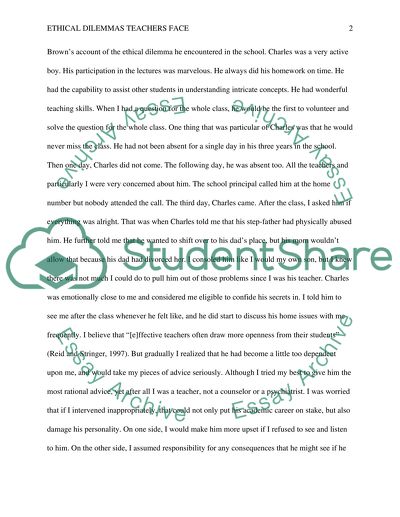Cite this document
(“Ethical dilemmas teachers face Research Paper Example | Topics and Well Written Essays - 2750 words”, n.d.)
Retrieved from https://studentshare.org/education/1394125-ethical-dilemmas-teachers-face
Retrieved from https://studentshare.org/education/1394125-ethical-dilemmas-teachers-face
(Ethical Dilemmas Teachers Face Research Paper Example | Topics and Well Written Essays - 2750 Words)
https://studentshare.org/education/1394125-ethical-dilemmas-teachers-face.
https://studentshare.org/education/1394125-ethical-dilemmas-teachers-face.
“Ethical Dilemmas Teachers Face Research Paper Example | Topics and Well Written Essays - 2750 Words”, n.d. https://studentshare.org/education/1394125-ethical-dilemmas-teachers-face.


